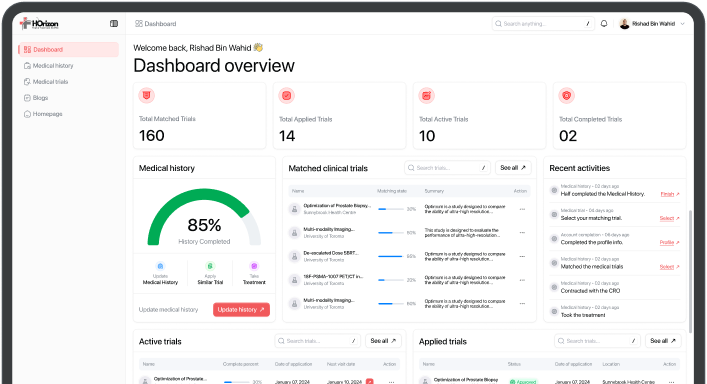Clinical trials are the cornerstone of medical research, driving innovations and bringing life-changing treatments to the forefront of healthcare. However, one of the most significant hurdles in conducting clinical trials is patient recruitment. Finding the right participants who meet specific criteria is a complex and time-consuming task, often leading to delays and increased costs. This is where clinical trial patient recruitment companies come into play.
In this comprehensive guide, we will explore the importance of clinical trial patient recruitment, highlight 15 leading companies in the field, discuss key considerations for choosing the right partner, and provide effective strategies for successful patient recruitment.
The Importance of Clinical Trial Patient Recruitment
Clinical trial patient recruitment is a crucial component of the clinical research process, significantly impacting the success and efficiency of clinical trials. Here are several key reasons why patient recruitment is so important:
- Timely Completion of Trials: Efficient recruitment ensures that clinical trials can be completed on schedule. Delays in recruitment can extend the timeline of a trial, increase costs, and delay the development and availability of new treatments and medications.
- Cost Management: Recruitment delays can lead to increased operational costs. Extended trial durations require more resources, including staffing, site management, and data collection. Effective recruitment strategies help manage and reduce these costs.
- Validity and Reliability of Results: Recruiting an adequate number of participants is essential for achieving statistically significant results. Insufficient sample sizes can compromise the validity and reliability of the study’s outcomes, potentially leading to inconclusive or biased results.
- Regulatory Compliance: Many clinical trials are subject to regulatory requirements that stipulate minimum participant numbers to ensure the safety and efficacy of new treatments. Failure to meet these requirements can result in non-compliance and jeopardize the trial’s approval process.
- Diverse and Representative Sample: Recruitment strategies aim to attract a diverse and representative sample of participants. This diversity is crucial for ensuring that the trial results are generalizable to the broader population. It helps in understanding how different demographics respond to the treatment, which is vital for personalized medicine.
- Patient Engagement and Retention: Effective recruitment strategies also focus on engaging and retaining participants throughout the trial. High dropout rates can affect the trial’s outcome and lead to additional recruitment efforts, further delaying the trial.
- Ethical Considerations: Recruiting participants in a transparent and ethical manner is paramount. It ensures that participants are fully informed about the trial, its potential risks, and benefits, and that they consent to participate voluntarily.
- Competitive Advantage: For research organizations and pharmaceutical companies, having efficient recruitment processes provides a competitive edge. It enables them to bring new treatments to market faster and more cost-effectively than their competitors.
Challenges in Patient Recruitment
Patient recruitment is a critical component of clinical trials. The success of a trial hinges on the timely recruitment of qualified participants. Common challenges include:
- Patient Awareness: Many potential participants are unaware of ongoing clinical trials relevant to their conditions.
- Eligibility Criteria: Stringent eligibility criteria can limit the number of eligible candidates.
- Geographical Barriers: Participants may be located far from trial sites, posing logistical challenges.
- Diversity: Ensuring a diverse participant pool that reflects the broader population can be challenging.
Role of Recruitment Companies
Clinical trial patient recruitment companies specialize in addressing these challenges. Their mission is to bridge the gap between research organizations and potential study participants through various strategies such as digital advertising, community outreach, and patient databases. By leveraging their expertise and resources, recruitment companies streamline the recruitment process, accelerate timelines, and enhance the overall efficiency of clinical trials.
15 Leading Clinical Trial Patient Recruitment Companies
1. Horizon Trials
- Mission: Horizon Trials aims to connect patients with clinical trials that perfectly match their condition, medical history, and other deciding factors through an AI-based matching algorithm.
- Services: Comprehensive patient recruitment, custom prescreeners, site identification, and patient retention services. Offers AI-driven matching for improved trial efficiency.
- Key Strength: AI-powered matching algorithm that ensures precise patient-trial matching, enhancing recruitment speed and accuracy.
- Success Story: Successfully expedited the recruitment process for a large-scale oncology trial by matching over 1,000 patients within three months.
2. Antidote
- Mission: Antidote connects sponsors and research sites with informed, engaged patients.
- Services: Validated referrals, customized outreach plans, access to a nonprofit and patient advocacy partner network.
- Success Story: Facilitated diverse participant recruitment for a groundbreaking oncology trial.
3. Recruit Qualified
- Approach: Uses AI technology and advanced marketing systems.
- Efficiency: Rapid response and quick turnaround times for urgent trials.
4. BBK Worldwide
- Experience: BBK Worldwide has over 30 years in patient recruitment.
- Expertise: Covers various therapeutic areas.
- Impact: Reduced recruitment time for a cardiovascular trial.
5. Clariness
- Global Reach: Clariness enrolled patients in over 1,000 trials across 50 countries.
- Diversity: Ensures a diverse participant pool.
- Success Story: Recruited diverse participants for an Alzheimer’s disease study.
6. ClinicalConnection
- Patient Database: ClinicalConnection works with a large database of patients.
- User-Friendly: Simplifies trial search for participants.
- Achievement: Rapid recruitment for a rare disease trial.
7. CSSi
- Local Engagement: CSSi Connects with local patient organizations.
- Custom Solutions: Tailored recruitment strategies.
- Impact: Recruited pediatric patients for a vaccine trial.
8. Curavit
- Telehealth Focus: Curavit specializes in decentralized clinical trials.
- Efficiency: Streamlines patient engagement through tech-driven solutions.
- Achievement: Expedited recruitment for an autoimmune disorder study.
9. Elligo Health Research
- Simplified Participation: Elligo Health Research Integrates clinical research into primary care.
- Success Story: Accelerated recruitment for a diabetes trial.
10. Langland
- Advertising Expertise: Langland blends patient insights with data and technology.
- Creative Impact: Engaging campaigns for participant recruitment.
- Campaign Success: Increased enrollment for a genetic disorder study.
11. MMG
- Global Strategists: Offers strategic support in diverse therapeutic areas.
- Impact: Recruited elderly patients for an aging-related clinical trial.
12. Praxis
- Customization: Offers tailored recruitment services.
- Patient-Centric: Focuses on patient-centric recruitment strategies.
- Success Story: High engagement for an immunotherapy trial.
13. Science37
- Technology Focus: Provides virtual clinical trial solutions.
- Innovation: Tech-driven patient engagement.
- Achievement: Transformed recruitment for a rare disease study.
14. StudyKik
- Online Accessibility: Uses a user-friendly online platform.
- Social Media Outreach: Broadens reach through social media platforms.
- Effective Outreach: Recruited young participants for a mental health trial.
15. TrialSpark
- Collaboration: Partners with physicians and pharmaceutical companies.
- Efficiency: Accelerates trial enrollment and data collection.
- Success Story: Rapid recruitment for a cancer immunotherapy trial.
Key Considerations for Choosing a Clinical Trial Recruitment Company
Trial Site Selection: Evaluate if the company can assist in selecting optimal trial site locations. Discuss site selection strategies and leverage their data from previous trials.
Recruitment Support vs. “Rescue” Recruitment: Determine if you need proactive recruitment support or assistance with ongoing trials facing enrollment challenges. Some companies specialize in rescue recruitment for stalled trials.
Budget Model: Explore budget options like pay-for-performance or flat fees. Consider your trial’s budget constraints and structure payment agreements accordingly.
In-House Marketing Team: Check if the company has an experienced in-house marketing team. Review examples of previous campaigns to assess their impact on patient engagement.
Therapeutic Area Experience: Partner with a company experienced in your trial’s therapeutic area. Review case studies showcasing past results in your chosen therapeutic area.
Phase of Trials: Choose a company with expertise in the specific phase of your trial. Leverage specialized knowledge for Phase 1 or Phase 4 trials, depending on your needs.
International Experience: Ensure the company has experience in international trials and can handle translations and global recruitment strategies.
Handling Ineligible Patients: Inquire about their process for managing ineligible patients and matching them with other trials. Ensure potential participants are not lost during the screening process.
Lead Time for Strategy Development: Discuss the lead time required for developing recruitment materials and strategies. Ensure timely initiation of recruitment efforts.
Patient Screening: Assess if the company offers custom pre screeners and phone screening services. Evaluate the convenience and utility of these services for your trial.
Handling Recruitment Challenges: Understand how the company addresses recruitment challenges and overcomes roadblocks. Request specific examples of past challenges and solutions.
Patient Retention: Evaluate tools and strategies for retaining patients post-enrollment. Ensure ongoing support for trial participants even after recruitment goals are met.
Reporting Preferences: Discuss the types and frequency of reports you expect from the recruitment company. Review sample reports to understand the depth and quality of insights provided.
Patient Centricity: Ensure the company focuses on creating a positive experience for patients and engages with patient communities. Inquire about their patient advocacy initiatives.
Recruitment Channels: Understand their recruitment channels, including digital, traditional, and grassroots methods. Ensure they tap into varied and diverse channels to find the most qualified leads.
Effective Strategies for Patient Recruitment in 2024

Leverage Digital Advertising: Utilize platforms like Facebook, Instagram, and Google to reach potential participants. Target specific demographics and interests to maximize engagement.
Build Community Partnerships: Partner with local patient organizations and nonprofits. Foster trust and engagement within the community.
Create Patient Databases: Maintain databases of patients interested in clinical trials. Use these databases to match participants with suitable studies.
Offer Telehealth Options: Enhance accessibility through telehealth solutions. Enable remote participation for patients in underserved or remote areas.
Develop Multilingual Capabilities: Engage diverse populations by offering multilingual support. Ensure materials and communication are available in multiple languages.
Implement Custom Prescreeners: Develop custom prescreeners to streamline the qualification process. Use phone screenings to further validate patient eligibility.
Focus on Patient Centricity: Create a patient-centric recruitment process. Ensure a positive experience from initial contact to trial participation.
Utilize Social Media Outreach: Engage potential participants through social media campaigns. Use platforms like Facebook and Instagram to reach a broader audience.
Employ Data-Driven Strategies: Leverage data analytics to optimize recruitment efforts. Use insights from previous campaigns to refine strategies.
Monitor and Adapt Strategies: Continuously monitor recruitment progress. Be prepared to adapt strategies based on real-time feedback and performance metrics.
Choosing the right clinical trial patient recruitment company is crucial for the success of your research. By understanding the capabilities and strengths of leading companies, considering key factors in your decision-making process, and implementing effective recruitment strategies, you can ensure timely and efficient patient recruitment for your clinical trials. Horizon Trials is committed to helping you navigate this complex landscape, providing expert guidance and support to drive your research forward.

